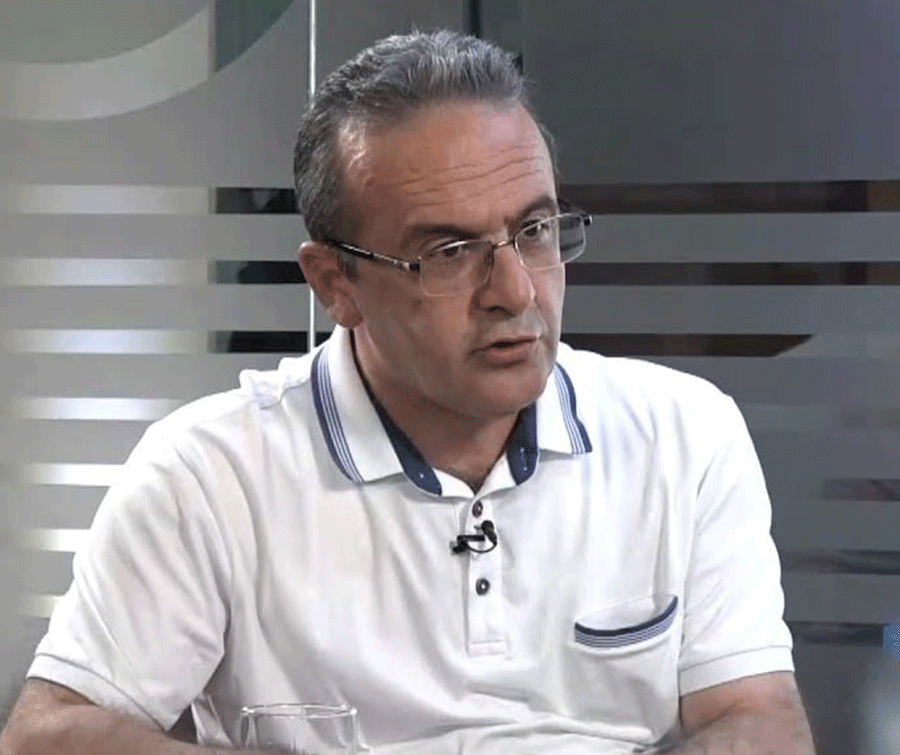The so-called “Community of Western Azerbaijan” sent letters to Human Rights Watch and Amnesty International and asked them to support “the restoration of the rights of Azerbaijanis violated as a result of the policy of ethnic cleansing carried out by Armenia.”
That is when genocide and ethnic cleansing are being carried out in Artsakh. In this regard, in a conversation with Aravot.am, Artur Sakunts, the head of the Vanadzor office of the Helsinki Civil Assembly, who, among other Armenian NGOs, appealed to the UN Security Council, urging them to adopt a resolution related to the opening of the Berdzor corridor.
“In principle, everyone can send a letter about everything that comes to mind, but in this case, first of all, the whole reality is that Azerbaijanis living in Armenia and Armenians living in Azerbaijan, except the population in Nagorno Karabakh, were not ethnically cleansed, but destroyed. , were carried out during the Soviet Union. In other words, if we take it in an enormous sense, the responsible is the Soviet Union. If we remember, it was 3 hours late to prevent violence in Sumgait; it happened in the Soviet Union. Before ’92, the dissolution of the official Soviet Union, the Belovezhsky Pact, when Yeltsin, Shushkevich, and Kravchuk signed, and the Soviet Union was dissolved, these transfers had taken place.
If they want specifics on how the events took place, they should mention the Sumgait massacre and, the Kirovabad massacre, the Baku massacre of 1990. At that time, the Soviet troops entered Baku not to save the Armenians but rather to stop and suppress the process of taking power by their national front. If they have claims, they should present them to the leadership of the Soviet Union and its successor, Russia. Along with that, it should be noted that during the same USSR, there was an organized transfer of Azerbaijanis from Armenia and Armenians from Azerbaijan.
Read also
In 1992, the Armenian population was removed from the entire region of Shahumyan by the Russian troops. Based on these facts, whenever such applications are presented, I call it a continuation of aggression by the Azerbaijani regime against Armenia through the use of people. For the Azerbaijani regime, human rights and such values do not exist at all. It was applied with the involvement of the so-called eco-activists during the beginning of the blockade of the Lachin Corridor, and even now, the steps to suppress and apply aggression continue. At the same time, political dissidents were imprisoned and killed in Baku, and even the trade union representatives were persecuted. It’s an interesting pattern, similar to the Nazi regime.”
Artur Sakunts said that the same Human Rights Watch and Amnesty International once spoke about the violence against the ethnic Armenian population in the territory of Azerbaijan during the Soviet Union. “They responded with violence to the declaration of the right to self-determination of Nagorno-Karabakh, but all this again during the time of the Soviet Union because the USSR only knew the instrument of violence, which was inherited by the Azerbaijani regime itself, in the most brutal form.”
Although Azerbaijan wants to find a counterbalance to its genocidal actions against the background of encirclement, ethnic cleansing, and starvation in Artsakh, demanding to restore the violated rights of Azerbaijanis, Sakunts believes that it is not possible to put them on the same level and compare them. “There is a decision of the International Court of Justice of the United Nations regarding the blockade of Artsakh, Nagorno-Karabakh, and the Lachin Corridor. It is the highest judicial authority of the United Nations.
That speaks of a massive action against the population of an entire area, which Azerbaijan does not carry out. But there is no other court decision that any Azerbaijani can refer to.
Of course, one should not swallow the bait and start entering into that discourse; there was an ethnic population of more than 500 thousand in Azerbaijan, outside the Nagorno-Karabakh, about 280 thousand Azerbaijanis in the territory of Armenia, but all of that, I repeat, was during the USSR. : If you make a claim, you should claim Russia, the successor of the USSR, is one of the five permanent members of the UN Security Council, so it has maintained its status and continued to be a member. Then why don’t you make demands on Russia as the successor to the Putin regime? It proves that the Baku regime ordered it because they have a much more general toolkit in terms of governance against the Putin regime, and they will not create problems against each other.”
Hripsime JEBEJYAN





















































